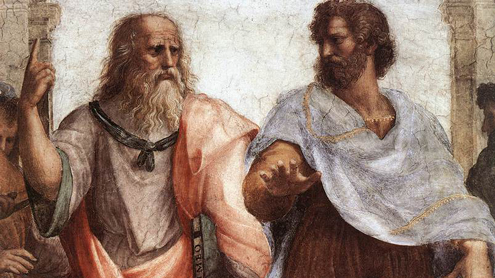In ancient Greece, there were two opposing views about the human mind. Plato thought a person was “tabula inscripta,” born with some innate knowledge. Whereas, Aristotle subscribed to the idea of “tabula rasa,” born without any previous knowledge.


In ancient Greece, there were two opposing views about the human mind. Plato thought a person was “tabula inscripta,” born with some innate knowledge. Whereas, Aristotle subscribed to the idea of “tabula rasa,” born without any previous knowledge.
In ancient Greece, there were two opposing views about the human mind. Plato thought a person was “tabula inscripta,” born with some innate knowledge. Whereas, Aristotle subscribed to the idea of “tabula rasa,” born without any previous knowledge.
In ancient Greece, there were two opposing views about the human mind. Plato thought a person was “tabula inscripta,” born with some innate knowledge. Whereas, Aristotle subscribed to the idea of “tabula rasa,” born without any previous knowledge.
SHC was one of the organizations recognized for its contributions to Missouri Governor’s Challenge to Prevent Suicide among Service Members, Veterans, and their Families.